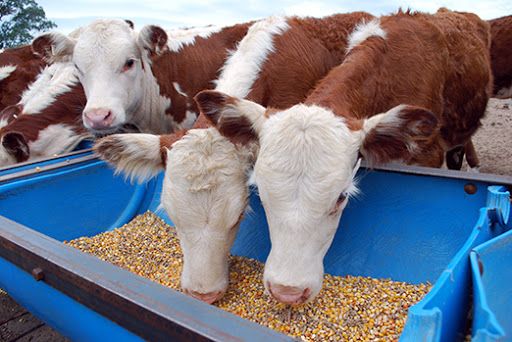The Board of Directors of the Green Climate Fund (GCF) approved the financing of three projects designed by FAO in Argentina, Guatemala and Sudan for a total value of 158.6 million dollars, aimed at mitigating greenhouse gas emissions, strengthening resilience facing climate change and combating deforestation.
FAO Director-General QU Dongyu underscored FAO’s willingness to continue to work closely with the Green Climate Fund in support of transforming the food system on the ground for the benefit of society, the environment, and farmers and consumers in general.
Together with Yannick Glemarec, executive director of the Green Climate Fund, he participated in the signing ceremony of the Financed Activity Agreement approved for Argentina, for a total of 82 million dollars.
QU also reaffirmed FAO’s commitment to the Paris Agreement and the global fight against the consequences of climate change and underlined the importance of acting with «concrete projects».
At the 27th meeting of the Board of Directors of the Green Climate Fund, held from 11 to 13 November, three projects were approved with FAO as an accredited entity.
FAO’s growing portfolio of projects in the Green Climate Fund currently includes 13 projects worth $ 793 million in funding that help countries tackle the climate crisis, paving the way to a greener future and cleaner.
Green Climate Fund
Yannick Glemarec noted that the GCF is focused on obtaining «tangible results» and speeding up the approval process to ensure that funding is allocated as quickly as possible to countries in need.
For his part, Leandro Gorgal, National Director of Financing with International Credit Organizations of Argentina, assured that the financing initiative represents a great step forward to promote better management and sustainability of forests in Argentina and thanked FAO and the Green Climate Fund your support.
Fight against deforestation in Argentina
The FAO-led project to reduce deforestation and forest degradation, worth 82 million dollars and entitled «Payments based on results of REDD + of Argentina for the period 2014-2016», will help Argentina to advance towards sustainable development and the objectives of the Paris Agreement.
This new initiative – carried out jointly by FAO and the Ministry of Environment and Sustainable Development of Argentina – will promote territorial forest management and forest restoration, the sustainable use of wood and non-wood forest products and the improvement of prevention and early response to forest fires.
The project activities on fire management and prevention are especially important and timely for Argentina, taking into account the increase in the frequency and intensity of forest fires this year.
The project will also contribute to the country’s long-term low-emission strategy.
More specifically, funds from the Green Climate Fund earmarked for Argentina will be used to develop and implement 95 community forest management plans, 92 forest-friendly livestock management plans, and six strategic fire prevention plans, as well as to establish seven watersheds. sustainable forestry to support and serve 7,000 families of producers, local and indigenous communities and wood workers.
Recovery after coronavirus disease (Covid-19) will be an integral component of the project, demonstrating the role of forests in «building back better.»
RELIVE project in Guatemala
The RELIVE project in Guatemala, worth $ 66.6 million, will help vulnerable farmers in the Dry Corridor adapt to the effects of climate change through climate-resilient agricultural and water resource management practices.
Small farmers will learn to use improved climate information systems, improved crop varieties, and efficient soil and water management techniques.
The project will provide direct technical assistance to 116,000 small farmers – many of them belonging to the Achi, Quechi, Mopan and Chorti indigenous ethnic groups, including 46,000 women – in five departments of the country; It will also indirectly benefit another 583,000 people.
RELIVE has a total budget of 66.7 million dollars, of which the Green Climate Fund will contribute 29.8 million dollars.
The remaining 36.84 million dollars will be financed by the Government of Guatemala and the Korean International Cooperation Agency, KOICA.
The RELIVE project, supported by FAO, will be implemented by the Ministry of Agriculture, Livestock and Food (MAGA), the National Forest Institute (INAB) and the German Cooperation Agency (GIZ).
Climate change mitigation and adaptation in the Sudan gum arabic belt
The Gomas Climate Change Adaptation and Mitigation (GAMS) project in Sudan is the first GCF funding proposal approved in what FAO defines as the Near East and North Africa region.
Its aim is to improve the resilience of rural smallholders to climate change in the North, West and South Kordofan states, through climate-resilient gum arabic agroforestry and grassland restoration.
More specifically, the project will support the restoration of 75,000 ha of agroforestry systems dedicated to smallholder gum arabic and 50,000 ha of degraded land, while improving smallholder gum value chains.
By providing a strong platform for the Great Green Wall framework program, the project will draw on the Sudan’s considerable experience in gum arabic production, which can be expanded in other countries and adapted to different national contexts.
The project will be jointly implemented by FAO and the country’s National Forestry Corporation (FNC), in collaboration with the Higher Council for the Environment and Natural Resources.
FAO’s work on climate change
Supporting countries’ efforts to mitigate and adapt to climate change is a cornerstone of FAO’s work.
FAO believes that the transition to sustainable and low-emission food systems can be achieved through climate-smart approaches, practices and techniques that preserve the environment and biodiversity while helping to strengthen the resilience of millions of poor family farmers.
Through its work with the Green Climate Fund, FAO seeks to increase investments in agriculture that offer socio-economic and environmental benefits that will support countries as they recover from the COVID-19 pandemic and relaunch their economies following models of low emission and climate resilient development.
![]()

